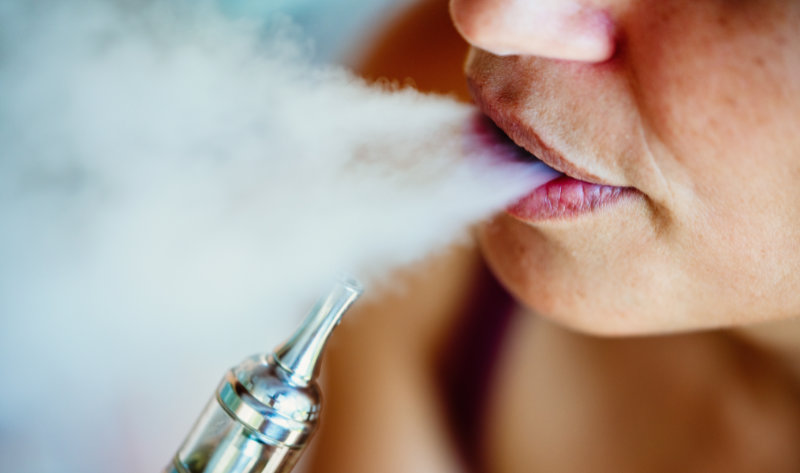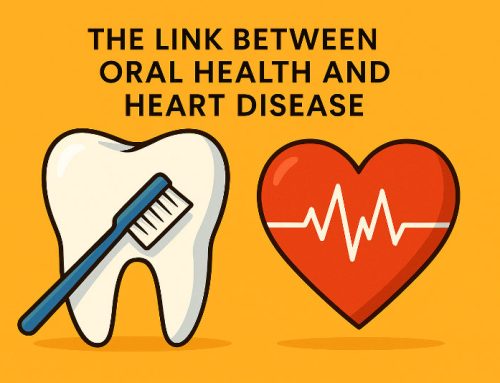Smoking and vaping have become widespread habits among people of all ages, with significant consequences for oral health. Given their increasing prevalence, it’s critical that we fully comprehend their impact on mouth and teeth health. Both practices expose oral cavities to harmful chemicals that may lead to mild irritation or more severe diseases.
One of the primary concerns surrounding smoking and vaping is their link to gum disease, also known as periodontal disease. Studies have revealed that smokers are at significantly increased risk of gum disease than non-smokers due to tobacco smoke’s harmful effects on gums; smoking causes inflammation, bleeding, and eventual tissue damage. Vaping, often considered a safer alternative to smoking, has also been linked with an increased risk of gum disease due to exposure to aerosolized chemicals that enter through aerosolized devices such as vape pens.
Beyond gum disease, smoking and vaping can also have adverse effects on the appearance and health of one’s teeth. Nicotine and tar in cigarettes can stain teeth with unsightly discolorations that are difficult to remove; furthermore, these substances weaken tooth enamel, making teeth more prone to decay and cavities than ever. Furthermore, vaping devices produce aerosols that contribute to enamel erosion and decay over time, endangering dental health overall.
This article will delve deeper into the effects of smoking and vaping on oral health, exploring all of their negative ramifications on both the mouth and teeth. By understanding the risks associated with smoking or vaping, individuals can make better-informed decisions regarding their oral care and take proactive steps to safeguard themselves against possible harm.
Effects of Smoking on Oral Health
Smoking has long been recognized as a primary risk factor for poor oral health. The chemicals found in tobacco smoke can wreak havoc on oral tissues and teeth, leading to adverse side effects that threaten both oral health and general well-being.
Smoking has long been linked to gum disease, also known as periodontal disease. Tobacco smoke contains harmful chemicals that irritate the gums and cause inflammation and swelling. Over time, this chronic inflammation may lead to gum tissue breakdown and form periodontal pockets that provide breeding grounds for bacteria. If left untreated, gum disease can develop into more severe stages, leading to tooth loss or damage to underlying bone structures.
Smoking can have an enormously detrimental effect on teeth’ appearance and health. Nicotine and tar found in cigarettes can stain enamel with unsightly yellow or brown discolorations that are hard to erase through regular brushing alone, weakening enamel further and increasing the risk for decay and cavities – creating an unattractive combination of discoloration, decay, enamel erosion, staining, and erosion that leads to dull smiles that look discolored, unhealthy, and dismal.
Smoking is also a key risk factor for oral cancer, a potentially life-threatening disease affecting the lips, mouth, tongue, and throat. Carcinogens found in tobacco smoke damage the cells that comprise these tissues, leading to cancerous lesions forming. Smoking significantly increases your chances of oral cancer development compared to non-smokers and becomes even higher the longer and harder you smoke.
Overall, smoking’s effects on oral health cannot be overstated or denied. From gum disease and tooth staining to oral cancer, smoking has severe repercussions for oral well-being. Quitting is one of the best steps individuals can take to protect their oral health and lessen their risk of serious dental issues; by adopting healthy habits, they can preserve their smiles for a lifetime of excellent dental well-being.
Effects of Vaping on Oral Health
Vaping’s popularity as an alternative to smoking has raised many questions regarding its effect on oral health. While vaping may appear safer due to omitting tobacco and combustion, it still poses significant risks to oral tissues and overall dental health. Vaping devices heat liquid nicotine, flavorings, and chemicals to create an aerosol that users inhale, containing numerous harmful substances that could have lasting detrimental effects on mouth tissue and dental health.
One of the primary drawbacks associated with vaping is its potential to irritate oral tissues. The heat and chemicals released by vaping devices can irritate delicate oral tissues, resulting in discomfort, soreness, ulcers, or, worse, mouth sores. Chronic exposure can compromise gum and soft tissue health, leading to gum disease or other oral infections.
Insufficient saliva production is a defining characteristic of dry mouth, and it is also associated with vaping. Saliva is critical in protecting oral health by flushing away food debris, neutralizing acids, and protecting against tooth decay. Vaping can interrupt this vital process, leaving the mouth vulnerable to bacterial growth and dental problems. This increases bad breath and risks such as cavities and gum disease.
Aerosols produced by vaping devices may contain harmful chemicals that can weaken tooth enamel and accelerate decay. Flavorings used in e-cigarettes have acidic properties that erode enamel over time and lead to tooth sensitivity, discoloration, and an increased susceptibility to cavities. Furthermore, nicotine found in vaping liquids may constrict blood vessels in the gums, reducing blood flow while hindering the body’s natural defense mechanisms against infection.
Vaping may provide an alternative to smoking, but it comes with risks to oral health. Individuals who vape should be aware of the potential consequences and take measures to protect their oral tissues while practicing good dental hygiene habits. Regular check-ups with oral health professionals can assist in monitoring this aspect of their health while addressing any concerns related to vaping.
Smoking and Vaping-Related Oral Health Issues
Both smoking and vaping can contribute to oral health conditions that compromise their integrity, such as gum disease. Understanding these oral health issues is vitally important for those who smoke or vape, as it will make them aware of the potential risks they face. Below are some of the more prevalent oral health issues associated with smoking or vaping:
- Periodontal Disease: Smoking is the risk for periodontal disease, commonly referred to as gum disease. The toxins found in tobacco smoke can irritate gums, leading to inflammation, bleeding, and eventual tissue damage. Vaping has also been linked to increased risks due to exposure to aerosolized chemicals.
- Tooth Discoloration: Nicotine and tar found in cigarettes can stain the enamel of teeth, causing unsightly discoloration that can be difficult to erase. Vaping liquid chemicals also have chemicals that cause staining on their own over time, resulting in dull and discolored smiles.
- Dry Mouth: Smoking and vaping can contribute to dry mouth, which is defined as insufficient saliva production. Saliva protects teeth and gums by washing away food debris, neutralizing acids, and inhibiting bacterial growth—something dry mouth prevents. Furthermore, it increases the risk of cavities, gum disease, and bad breath.
- Enamel Erosion: Vaping devices produce aerosols with acidic flavorings, which, over time, can wear away at tooth enamel and weaken it, leaving teeth more susceptible to decay and cavities. Smoking may further compromise enamel strength, increasing the risk of decay. Enamel erosion can lead to tooth sensitivity, discoloration, and an increased risk of dental issues.
- Oral Cancer: Smoking is one of the primary risk factors for oral cancer, a potentially life-threatening disease affecting the lips, mouth, tongue, and throat. Vaping has also been associated with an increased risk of oral cancer; however, more research needs to be conducted in this area before we can fully comprehend how vaping contributes to cancer development.
Tips for Smoking and Vaping Cessation and Oral Health Protection
Quitting smoking or vaping can be challenging, yet essential to maintaining oral health and overall wellness. Here are some strategies that may help individuals kick their habit and protect their oral health:
- Consider Engaging Professional Support: For tailored guidance and support when quitting smoking or vaping successfully, consulting a healthcare provider or smoking cessation counselor may be beneficial. They may offer resources, counseling sessions, and medication as part of their assistance packages to aid the transition.
- Set Clear Goals: Set realistic and obtainable goals for kicking smoking or vaping. From decreasing daily smoking counts to setting an exit date, setting clear goals will keep you on track to better oral health.
- Recognize Triggers: Take note of situations, emotions, or activities that trigger your smoking or vaping habits and devise effective coping mechanisms to manage them effectively. Looking into alternative forms of stress relief, such as yoga, can help decrease urges to smoke or vape.
- Nicotine Replacement Therapy (NRT) may provide relief: nicotine patches, gum, or lozenges can all help ease withdrawal symptoms associated with quitting smoking by replacing nicotine cravings with something more manageable than nicotine addiction. Talk to your healthcare provider about whether NRT might be right for you.
- Stay Active: Engage in regular physical activity to squelch cravings and enhance your mood. Exercise releases endorphins that can reduce stress and improve overall well-being.
- Practice Stress-relief Techniques: Discover techniques such as deep breathing, meditation,, or yoga to control cravings and lower stress levels. Finding healthy ways of coping can prevent relapses and support long-term cessation efforts.
- Avoid Triggers: To successfully quit smoking or vaping, avoid environments or situations in which smoking or vaping is prevalent, particularly during the initial stages of quitting. Surround yourself with supportive individuals who will support and respect your efforts to quit and prioritize oral health as an essential priority.
- Stay Hydrated: Drink plenty of water throughout the day to keep your mouth moist, stave off cravings, flush toxins from your system, and promote overall wellness.
- Reward Yourself: Take time to celebrate each step toward reaching your goal—milestones on your quit smoking journey or positive improvements in oral health—as they occur. Give yourself rewards that align with your goals and encourage positive behavioral change.
- Maintain Good Oral Hygiene: Brushing twice daily, flossing daily, and using mouthwash are essential for maintaining optimal oral hygiene. Regular dental check-ups will allow your dentist to assess potential issues before they escalate further.
Implement these tips into your smoking or vaping cessation plan to protect oral health and increase your chances of long-term success in kicking these harmful habits. Remember, quitting is a journey; every step toward healthier living brings you one step closer.
Conclusion
Understanding the various oral health complications related to smoking and vaping can help individuals make informed decisions about their habits and take proactive measures to safeguard their oral health. Quitting smoking/vaping altogether, practicing good oral hygiene practices at home, and visiting their dentist regularly are all vital parts of maintaining a healthy smile while decreasing the risk of serious dental issues.
Smoking and vaping pose significant threats to oral health, from gum disease and staining to dry mouth and oral cancer. Therefore, those who smoke or vape must understand these risks and take measures to protect their oral health as soon as they start smoking or vaping.
Quitting smoking and vaping is the single most effective way to lower the risk of oral health issues, improving both health and appearance while simultaneously decreasing the chances of serious dental issues. Furthermore, maintaining good oral hygiene—brushing, flossing, and regular dental check-ups—is essential to keeping teeth and gums in shape.
Raising awareness about the oral health risks associated with smoking and vaping is critical to protecting future generations from falling into harmful habits, and educating individuals on their impact may encourage healthier choices that prioritize their dental well-being.
Protecting oral health requires actively attempting to quit smoking and vaping, practicing good oral hygiene habits, and raising awareness of their associated risks. By following this path to better oral health, individuals can enjoy lifelong well-being with beautiful smiles.
Now is the Time to Take Charge of Your Oral Health!
Are you ready to prioritize your oral health and quit smoking or vaping? Call HPS Advanced Dental Care immediately at (248) 652-0024 and schedule your initial consultation. Our experienced team is here to guide and support your journey towards a healthier smile. Don’t wait any longer; take the first step toward improved oral health and a brighter future—call now!






